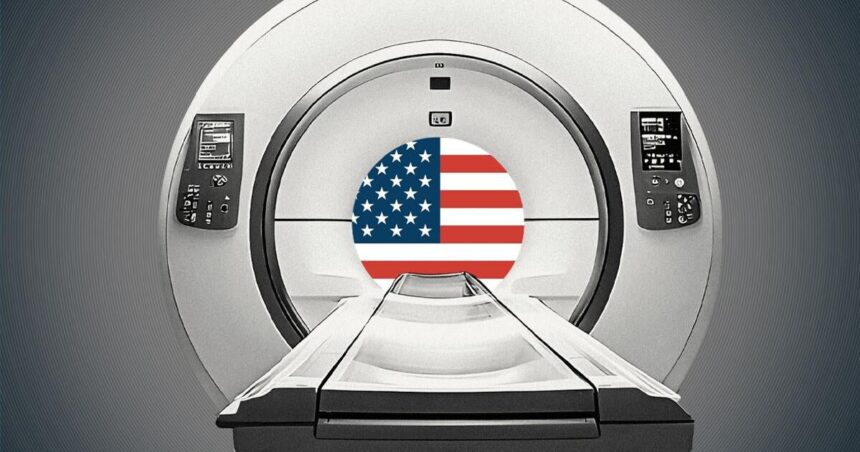Just across the border from Fort Erie, Ontario, a bustling medical facility in Buffalo has become an unexpected lifeline for Canadians caught in the web of their own healthcare system’s delays. KMG Imaging Center, Canadian-owned and operated, has witnessed a surge in patients willing to trade Canadian dollars for American medical expediency.
“We’re seeing Ontarians come through our doors daily,” says Dr. Melissa Chen, medical director at KMG Imaging. “Many tell us they’ve been waiting months, sometimes over a year, for an MRI that we can provide within days.”
The facility, which opened three years ago, has grown its Canadian clientele to approximately 40% of its patient base. Most arrive from the Golden Horseshoe region of Ontario, driven by wait times that can stretch up to 18 months for non-urgent MRIs in the provincial healthcare system.
For Sandra Winters, a 57-year-old Hamilton resident suffering from chronic back pain, the decision to cross the border came after her specialist suggested she might wait up to nine months for imaging. “I was in constant pain, unable to work or even sleep properly,” Winters explains. “When I discovered I could get an MRI in Buffalo within a week for $600, it was a difficult but necessary decision.”
This growing trend highlights the troubling state of Canada’s healthcare system, particularly in Ontario, where provincial data shows MRI wait times averaging 96 days as of August 2023. However, many patients report significantly longer waits, especially for non-life-threatening conditions.
The Ontario Ministry of Health has acknowledged these challenges, pointing to a $30 million investment in 2023 to increase diagnostic imaging capacity across the province. “We’re working to reduce wait times through targeted funding and system improvements,” a ministry spokesperson told CO24, though they declined to comment specifically on Canadians seeking care abroad.
Healthcare economists note this cross-border medical tourism represents more than just individual choices – it signals deeper structural issues. Dr. Michael Decter, former deputy minister of health for Ontario and healthcare policy expert, describes it as “a symptom of a system under pressure.”
“When people who can afford it start leaving the public system for faster care elsewhere, we’re seeing a failure to meet reasonable expectations,” Decter says. “The concern becomes whether this creates a two-tiered system based not on medical need but on ability to pay.”
At KMG Imaging, patients typically pay between $500-$900 CAD for an MRI, depending on the complexity and body part being scanned. While this represents a significant expense not covered by provincial health insurance, many Canadians like Peter McLeod consider it worthwhile.
“I needed answers about my knee before making decisions about surgery,” says McLeod, a Toronto construction manager. “Waiting eight months meant potentially eight more months of limited mobility and being on disability. Financially, the trip to Buffalo actually saved me money in the long run.”
The phenomenon has sparked debate within Canadian political circles about healthcare funding priorities and the balance between public and private options. Critics argue that Canadians shouldn’t need to leave the country for timely care, while others suggest embracing a hybrid model that maintains universal coverage while allowing more flexibility.
Dr. Chen emphasizes that most patients arrive with referrals from Canadian physicians who are equally frustrated by system constraints. “Many doctors quietly recommend us because they want what’s best for their patients, even if that means sending them across the border.“
For the Canadian entrepreneurs who established KMG Imaging, the business opportunity emerged from personal experience with healthcare delays. “We saw a need and created a solution,” says Thomas Richardson, one of the facility’s founders. “We never anticipated how quickly demand would grow.”
As provincial health systems struggle with post-pandemic backlogs and chronic staffing shortages, the flow of Canadians to Buffalo seems unlikely to slow. This raises a fundamental question about the future of Canadian healthcare: Can a system designed on principles of universality and equal access adapt to modern demands without forcing its citizens to seek solutions beyond its borders?










